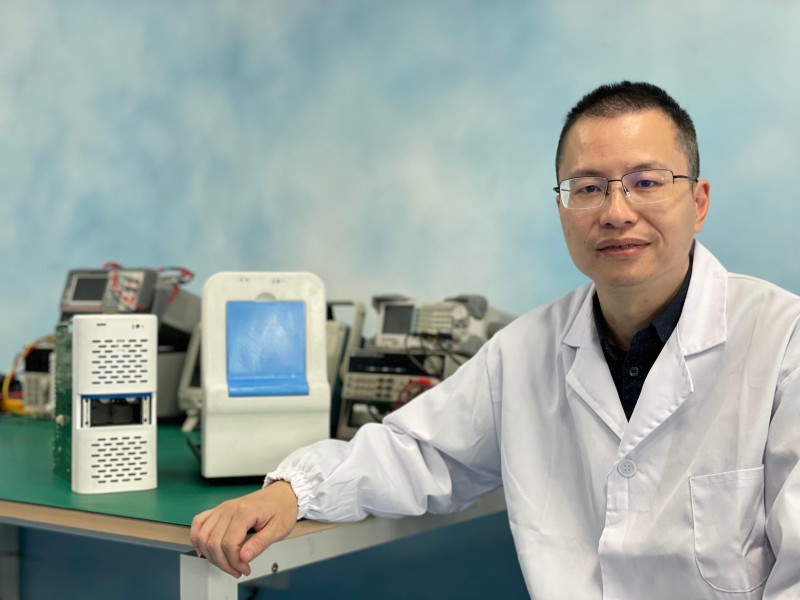Delayed diagnosis for communicable diseases put widespread populations at risk in our globalized world, especially with zoonotic pathogens transmitted between animals and humans. An estimated 75% of the 30 newly detected human pathogens recorded over the past 30 years in 2008 are of animal origin, according to a WHO report released in 2021.
“Our team has been dedicated to overcoming diagnostic design challenges to serve the diagnostic need for POCT speed and accessibility in both IVD (in-vitro) and non-IVD,” says Lianyi Xie, who founded Hangzhou Bigfish Bio-tech Co., Ltd, in 2017. “Our point-of-care tests (POCT) are designed to work fast in resource-limited conditions, while catering for diverse disease spectrums.”
Bigfish’s POCTs are designed to safeguard food safety, as well as the health of livestock and companion animals, especially considering China’s growing number of pet owners.
Quick POCT design approvals, Xie explained, must tread a fine balance between innovation and a focus on a traditional and reliable amplification technology, based on polymerase chain reaction (PCR), to detect minute quantities of nucleic acids from complex media.
Consider the outbreak of African swine fever (ASF) in China, home to the world’s largest pork production and consumption market. In 2019, ASF caused the death of more than 43 million pigs, and around $US 111 billion in losses. Expediating POCT designs relies on close collaboration with academic and government bodies, as well as feedback from users, such as China’s major pig breeders.
“Accuracy and sensitivity on par with laboratory settings, even on small remote farms, are essential for our kits, which are made affordable and easy to use on any swineherd,” explains Xie.
Bigfish’s work on nationwide disease prevention and eradication also extends to brucellosis, which remains the most common zoonotic disease worldwide, as well as diseases in companion animals.
Bigfish has facilitated faster POCT in around 4,000 veterinary centres across China. Shuilin Zhu, chairman of Zhejiang Small Animal Protection Association, added that the company’s technologies for animal
husbandry and pet care not only increased efficiency of prevention and control, but also significantly improve animal welfare.
Enabling a compact design without greater cost for users is another priority in the design and manufacture for their genetic tests. Their molecular diagnostic assay GeNext is no larger than a water bottle, and weighs 2 kilogrammes. It features mesofluidic and microfluidic chips which automate laborious steps from nucleic acid extraction, gene amplification to real-time data upload and analysis.
Fully enclosed to avoid potential aerosol contamination, the GeNext 2.0 now in mass production can enable sample throughput increased from 1 to 16 per round, targeted sequence expanded from 5 to 25 per run, without additional time or cost.
“Our GeNext 3.0 designs will further reduce time, upgrade with silicon-based chips, and incorporate sequencing technologies such as nanopore sequencing for broader clinical context in prenatal test and early diagnosis of cancer,” says Xie. “Our POCT designs could one day be used by anyone, anywhere without having to consider the cost.”
Post time: Feb-18-2022
 中文网站
中文网站


